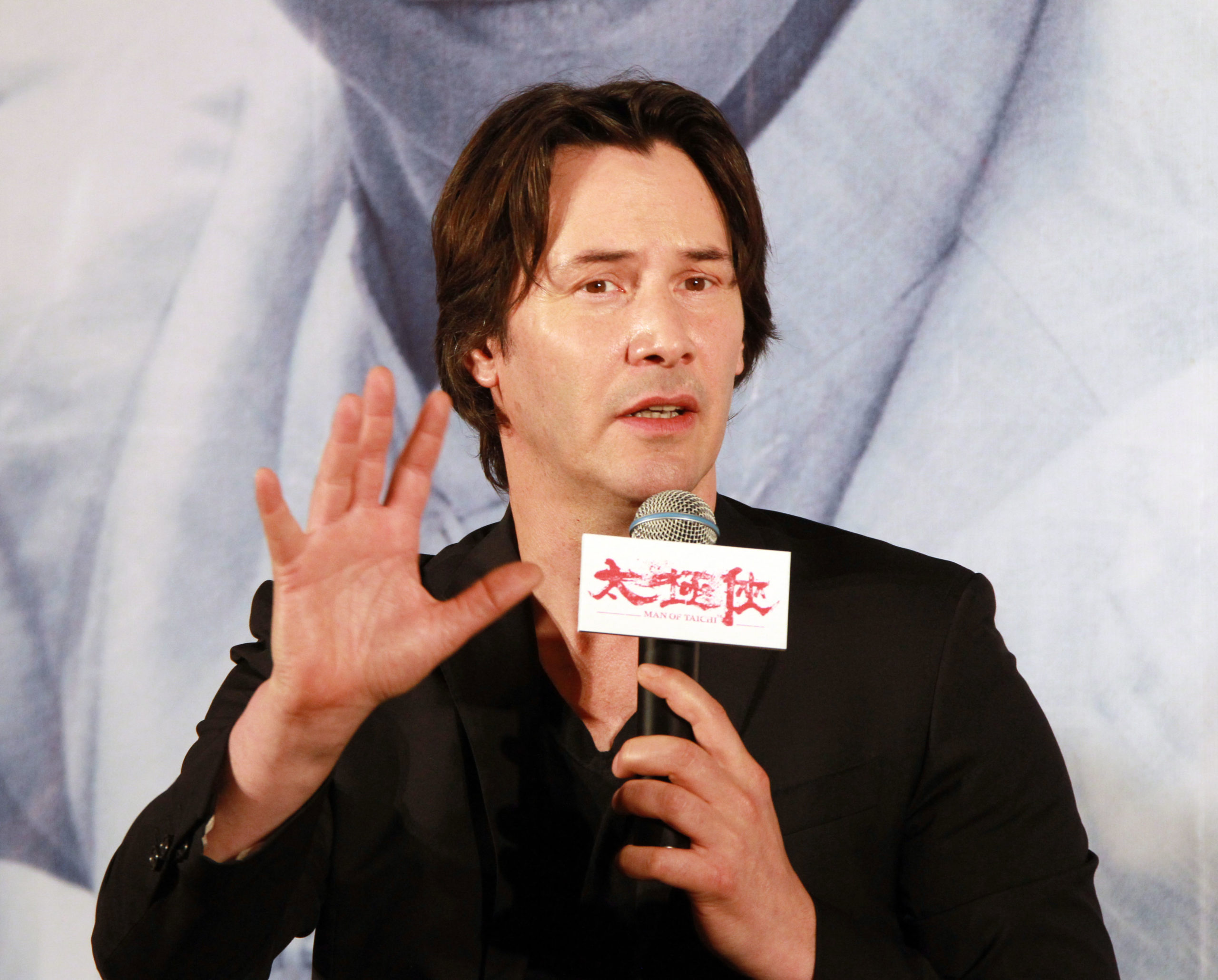Chinese nationalists call for Matrix boycott after Keanu Reeves joins Dalai Lama-associated concert
Keanu Reeves will appear at the annual benefit concert for Tibet House US, a New York-based nonprofit organization founded at the request of the Dalai Lama. Reeves is part Chinese and a Hollywood heartthrob, but that isn’t protecting him from the ire of angry Chinese social media users.

Calls to boycott The Matrix Resurrections, the latest installment of The Matrix franchise, have sprung up on Chinese social media after lead actor Keanu Reeves confirmed his participation in a benefit concert associated with the Dalai Lama. The Tibetan spiritual leader is considered a dangerous separatist by the Chinese government.
The controversy unfolded on Friday — about a week after the movie hit Chinese theaters — when news emerged that Reeves would be among performers at the 2022 Tibet House US Benefit Concert, which is scheduled to take place virtually on March 3.
Held annually in celebration of the Tibetan New Year, the show is organized by Tibet House US (THUS), a New York-based nonprofit organization founded at the request of the Dalai Lama in 1987 to preserve Tibetan culture. On its official website, the event is introduced by THUS as its way to observe the Monlam Prayer Festival, which lasts from the fourth to the eleventh day of the first month in the Tibetan calendar, and which “has been prohibited by the Chinese Communists since 1959.”
To “honor this tradition” that’s important to “the world wide Tibetan exile community,” THUS created the fundraising concert in 1993. Throughout its history, the event has featured a star-studded list of artists including David Bowie and Iggy Pop, as well as support from well-known activists including Dalai Lama, whose personal video message was played at the beginning of last year’s concert. In addition to Reeves, the lineup for the show’s 35th iteration this year also includes Patti Smith, Laurie Anderson, and others, selected by curator and artistic director Philip Glass.
Although the specifics regarding Reeves’ performance have not been revealed and it’s unclear if Dalai Lama is featured in this year’s concert in any capacity, the news sparked an angry reaction from Chinese internet users, who believe that the actor’s involvement in the event was an indication of his support for Tibet’s independence and admiration for the Dalai Lama. “I used to be a fan of Reeves not only because he’s a great actor, but also because he has Chinese heritage. But apparently we hold different views on Tibetan issues and it’s no-brainer for me to stop liking him because of that,” a Weibo user wrote (in Chinese).
China news, weekly.
Sign up for The China Project’s weekly newsletter, our free roundup of the most important China stories.
The controversy has also drawn fresh scrutiny to Reeves’ past work and his personal beliefs. As the Rolling Stone pointed out, the actor “has a long tradition of being tied to the spiritual and philosophical”, as evidenced by the magazine’s story on “The Tao of Keanu Reeves. In Little Buddha, a 1993 drama film that tells the story of a group of Tibetan monks seeking out the rebirth of their Buddhist teacher, Reeves portrayed Prince Siddhartha, the Buddha before his enlightenment. Although the film itself is apolitical, the Dalai Lama attended its premiere at Paris, where he reportedly held the director’s hand throughout the movie and proclaimed that it was “wonderful.”
Forced into exile in India after a failed uprising against Beijing’s rule in 1959, the Dalai Lama — a Nobel peace laureate — has long been considered by Chinese officials as a separtist who they claim is conspiring to destroy the country’s sovereignty by pushing for Tibet’s independence. Over the years, Beijing has punished a long list of Western celebrities and politicians, including ex-Prime Minister of UK David Cameron and Icelandic singer Bjork, for their association with the Dalai Lama and perceived support for Tibetan autonomy and religious freedom.
The growing outrage against Reeves on Chinese social media might further hurt the box office performance of The Matrix Resurrections, which already bombed in China on its opening weekend, making only with a $7.5 million. Online, some Matrix enthusiasts said that the “disappointing” news about Reeves made them want to pirate the movie instead of watching it in theaters.
The Matrix Resurrections is far from the first Western film to face nationalist ire in China due to political controversy surrounding its director or actors. For example, Nomadland, a 2020 American drama film that made its Beijing-born director Chloé Zhao (赵婷 Zhào Tíng) the first woman of Asian descent to ever win the Golden Globe for Best Director, failed to obtain a theatrical release in China after internet users unearthed an old interview of her, in which Zhao described China as a “a place where there are lies everywhere.” The discovery later resulted in a nationalist backlash and censorship of the filmmaker and her award-winning movie on Chinese social media.
As the controversy surrounding Reeves has attracted attention from major news outlets like Huanqiu.com (in Chinese), the online edition of the nationalist rag the Global Times, it’s likely that the backlash will only grow more intense and toxic. But there’s room for redemption, if Reeves is so inclined: Last year John Cena proved that a grovelling apology and a declaration of love for China can be enough to put such controversies to rest.






